
News
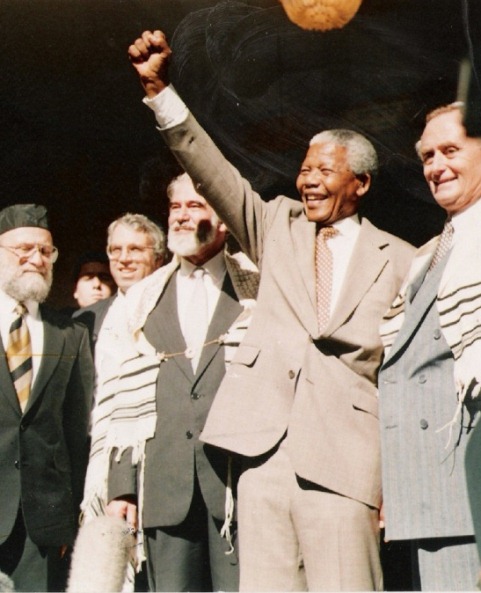
NELSON MANDELA: ONCE IN A CENTURY
Published
10 years agoon
By
adminGEOFF SIFRIN
This piece originally appeared in the SA Jewish Report 20 June 2013
The most cherished photographs many people possess, displayed on mantlepieces or in special albums with family and friends, are those showing them next to Nelson Mandela, shaking his hand or receiving that broad smile of his. You find them hanging on the boardroom walls of giant corporations and in classrooms of township schools where he came to speak to children. What a joy to be able to point to a picture and say: “That’s me with Madiba!” – brushing shoulders with greatness.
Even this newspaper can claim a connection: the first edition, published on May 15, 1998, carried a message from (then) President Mandela: “Whenever and wherever freedom of expression is upheld, the advent of a newspaper adds to the desirable diversity of voices and enriches the market of ideas.
“I welcome the addition of the South African Jewish Report to the beautiful tapestry of the South African media… in playing a critical role in shaping a new South African policy and culture. I wish your publication success and rapid growth.”
What is this magic that made almost all individuals and groups with whom he came into contact feel special? It is hard to define, but it was there in bucketfuls.
Among the many minority groups he got to know well were South African Jews. One of his earliest encounters was in 1941 when, as a young man, he came to Johannesburg from the Eastern Cape seeking work, and was given his first job by Jewish attorney Lazar Sidelsky in his law firm. This act – both unusual and brave – made a lasting impression on Mandela. Later, many white comrades with whom he formed close bonds in the Struggle were leftist Jews. Of the 156 accused in the Treason Trial of 1956, 23 were whites – more than half of them Jews. The 17 activists arrested at Liliesleaf, Rivonia in July 1963, included five whites – all of whom were Jews.
Then at Wits University where he studied law, student friends were Jewish. Some of them later defended him in the high-profile trials mentioned above. The defence team in the Treason Trial was headed by advocate Isie Maisels, a respected member of the Johannesburg Bar. Another Jewish advocate, Sydney Kentridge, dealt particularly with Mandela as his counsel. Kentridge said years later: “I could somehow tell from the many talks I had with him that this man was a leader – of course I couldn’t have guessed he would become the leader he, in fact, became.”
By the trial’s end in 1961, all the defendants had been acquitted. Later, at the 1964 Rivonia Trial, he received a life sentence.
 Mandela with, from left, Rabbi Jack Steinhorn, Israeli Ambassador Alon LIel (behind), the late Chief Rabbi Cyril Harris and senior Cape Jewish leader Mervyn Smith
Mandela with, from left, Rabbi Jack Steinhorn, Israeli Ambassador Alon LIel (behind), the late Chief Rabbi Cyril Harris and senior Cape Jewish leader Mervyn Smith
But those early impressions were not consistent. His Jewish connections then were primarily with individuals – as friends, activists, lawyers and newspapermen. With the Jewish majority, he had little contact. Similar to other white groups, only a small percentage of SA Jews fought apartheid; Jewish radicals were on the margins of the community and often regarded with mistrust and hostility by it. The resentment this caused among Jewish activists still resonates in the community today.
Although most Jews went along with apartheid and benefited from it, they felt an awkward tension with it. They didn’t actively support it, voted consistently for liberal opposition parties in elections, and repeatedly backed Parliamentarians like Helen Suzman, who argued against its laws. Jewish women’s groups and others worked to alleviate the effects of apartheid on blacks. But still today Jews are ill at ease with the topic. The Struggle posed moral questions without simple answers: what was Judaism’s duty to the oppressed who lived around and among them? What had Jews learnt from their own history of persecution? And did they have the courage to stand up against apartheid when, in this virtual police state, it might damage their community by inviting retribution from the Afrikaans nationalist regime, which was in any case not well disposed towards them and had anti-Semitic tendencies?
After President FW de Klerk announced on February 2, 1990 that the ban on the ANC was being lifted and Mandela would be released after 27 years in prison, a new period began in which he engaged vigorously with mainstream Jewish organisations, philanthropists and businessmen.
Key among them was the SA Jewish Board of Deputies, at whose National Conference in 1993 he was the keynote speaker. Of course, hanging in the background like a dark shadow was the uncomfortable recollection that during apartheid, the SAJBD had adhered to a formal “non-political” policy, saying its mandate was primarily to look after Jewish interests. In the brutal racial system, this had weighty moral connotations. Today, the mainstream takes pride in the Jewish activists who fought with Mandela, many of whom were banned, jailed or forced into exile, provoking a retort that it is unfairly claiming the activists’ reflected glory. Mandela’s broader contacts with the Jewish community included community upliftment organisation MaAfrika Tikkun, of which he became patron-in-chief. It was – and remains – a proud example of the Jewish community’s work among the underprivileged.
Greatness often attracts greatness, and Mandela found a skilled and enthusiastic supporter in Glasgow-born Chief Rabbi, Cyril Harris. He chided and charmed SA Jewry through the complicated process and helped allay their anxieties about what was to come. He arrived in the country in 1988 from London when apartheid’s grip was already loosening.
His friendship with Mandela threw into relief the question: why had so few rabbis – the purported conveyors of Jewish values – been active in resisting apartheid? That matter, too, does not have a simple answer and bothers SA Jews until today.
On sighting Harris during his trip to Israel with Jewish leaders, Mandela affectionately proclaimed: “My rabbi has come!” The visit was a major step politically and few aside from Mandela possessed the gravitas to undertake such a thing; hostility to Israel in many political quarters was intense. Harris was equally warm to Mandela, declaring – when he was being treated by a Jewish doctor for eye problems derived from working in lime quarries of Robben Island during his imprisonment: “We’re sorry you are having trouble with your eyes, but we want you to know that there is nothing wrong with your vision.”
Ironically Harris, who had not lived in South Africa during apartheid, testified on behalf of SA Jewry at the Faith Communities Hearings of the Truth and Reconciliation Commission in 1997 about its role. Several white religious leaders apologised for their communities’ acquiescence during apartheid. Harris, too, expressed regret for the Jewish community. Other white groups had done no better, but his words caused some Jewish soul-searching.
In 1985 a movement called Jews for Social Justice was started for social action against apartheid, supported by Rabbis Norman Bernhard and Ady Assabi. Again, as the essential reconciler, Mandela attended shortly after his release from prison a Shabbat service at Temple Shalom in Johannesburg, at Assabi’s invitation. It provoked some enraged members of Assabi’s congregation to protest the invitation, since just prior to it Mandela had appeared on television warmly embracing PLO Chairman Yasser Arafat at Namibia’s Independence Day celebrations. But Mandela’s magic quickly overcame any opposition amongst SA Jews; they fell in love with him, as all South Africans did.
Mandela possessed profound loyalty to friends and comrades, such as with feisty Helen Suzman. When she was the sole member of the Progressive Party in Parliament, she was the first Parliamentarian to visit the prisoner Mandela on Robben Island and look into the plight of political convicts.
After apartheid he remained close to her, even after she was thoroughly marginalised by the country’s new political climate. Suzman commented: “I have been airbrushed out of history by the new regime – but my friend Mandela still comes to see me.”
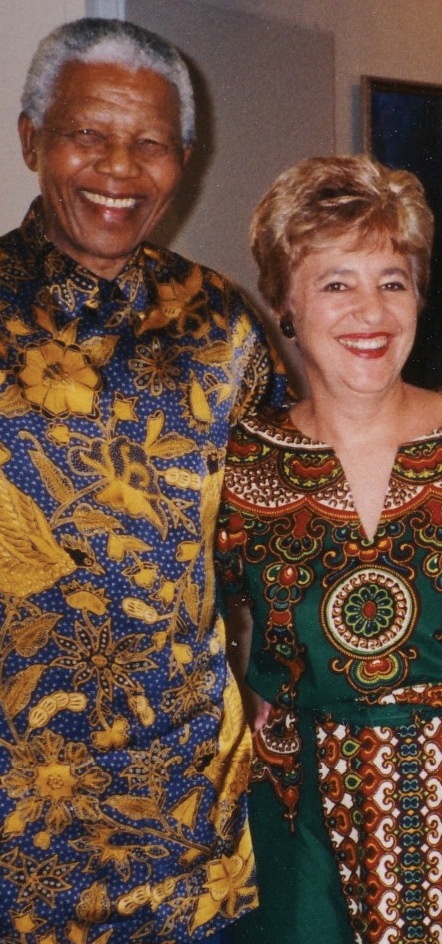 With South African Jews so passionately Zionist, the Israeli-Palestinian question inevitably came up with Mandela. Instinctively, he was more sympathetic to Palestinians than Israelis, given the close links during apartheid between the ANC and the PLO. However, he again showed his magnanimity by attending a ceremony at Oxford Synagogue in Johannesburg in 1995 to honour assassinated Israeli Prime Minister Yitzhak Rabin.
With South African Jews so passionately Zionist, the Israeli-Palestinian question inevitably came up with Mandela. Instinctively, he was more sympathetic to Palestinians than Israelis, given the close links during apartheid between the ANC and the PLO. However, he again showed his magnanimity by attending a ceremony at Oxford Synagogue in Johannesburg in 1995 to honour assassinated Israeli Prime Minister Yitzhak Rabin.
Mandela in Israel in 1999 with Marlene Bethlehem – a senior member of the SA Jewish Board of Deputies as well as a director os the SA Jewish Report
His trip to Israel in October 1999 with Jewish community leaders was a bold step politically, aimed at repairing political damage caused by Israeli links with apartheid South Africa. Israel had co-operated in military matters with the government, leaving a bitter taste in the ANC and other black movements.
Mandela proposed a plan for Mideast peace, calling on the Arabs to recognise Israel within the 1967 borders, and Israel to give up territory for peace. His proposals were regarded by Israelis and Palestinians as naive. In Gaza, he met with Arafat and, while in Israel, he visited Rabin’s grave and Yad Vashem.
His reconciling ethos stands as a stark contrast to what is happening today, where government officials and diplomats behave like loose cannons, making anti-Israel statements, while the leadership says nothing.
A South Africa without Mandela will rightfully pose the question: What is his legacy for the country and world? Certainly in South Africa there is no-one in the current leadership even remotely approaching his visionary stature. And in the Middle East? If only a Mandela could emerge from the Israeli or Palestinian side to do there what Nelson Rolihlahla Mandela did for South Africa.
His lack of bitterness after his release from imprisonment reassured very nervous whites, Jews among them, that after living with “packed suitcases under the bed” during apartheid, they had a future here after all. Most people always knew, even if they tried to deny it, that apartheid couldn’t last forever, no matter how brutal the regime and pervasive the security police in every corner of the society. It seemed likely it would end in a racial bloodbath.
Under Mandela, there would be no bloodbath. He created an atmosphere where minorities felt safe. He encouraged all South Africans to join in building a “rainbow nation”. He even invited one of his warders from Robben Island to his presidential inauguration and had lunch with Percy Yutar, a state prosecutor in the Rivonia Trial. He lived the Constitution: “South Africa belongs to all who live in it.”
Worldwide he is revered; even the United Nations proclaimed July 18 – his birthday – a special day in his name. His decision to retire after one term as president set an example in a world where in many countries this is unthinkable – witness events in Syria and our neighbour, Zimbabwe, where leaders ruthlessly cling to power, turning their armies against their own people.
Many politicians and groups will try to appropriate him for their own agendas. Even when he was desperately ill, this was cynically done, as with the ANC’s embarrassing display of an obviously ailing Mandela for the TV cameras a few months ago.
The void will only be truly felt after he is no longer with us; as a wise writer once observed: “Nobody is more intensely present than the moment of their departure.” Even in retirement, away from the public eye, he was still there as a guardian for everything we strive for in this country.
It is gratifying that he received his accolades while still alive and saw his dream of a democratic South Africa come true. Sadly, the standard of our politics has deteriorated since his departure from public life. The ANC has declined so much that even Archbishop Emeritus Desmond Tutu has declared that he will not be voting for it in the 2014 elections.
It is unfair to deify Mandela; he was flesh and blood like the rest of us, capable of suffering and erring. Imagine the loneliness and fear he must have endured for so long even while continuing to hold fast to his political principles.
But the phrase “Cometh the hour, cometh the man” could not have been truer than in South Africa. In a world filled with hatred and cynicism, we desperately need again the dignity and integrity of a Mandela, a man who lived in full his own ideal: “In a situation where resentment, anger and revenge would be expected of you, do the surprising thing: forgive, go beyond yourself and find a better option.”
We will sorely miss his magic when he’s gone. Regretfully, a man like that comes along once in a century





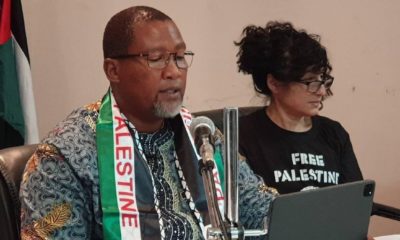

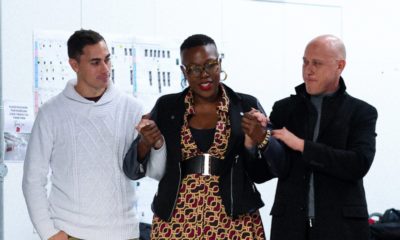

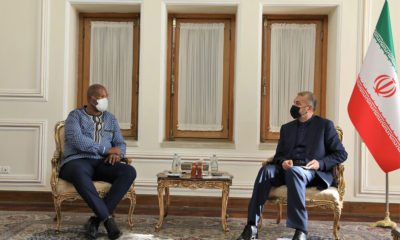

Barney Harris
Dec 10, 2013 at 3:06 am
‘
As fine a piece of journalism as one can find. Balanced, nuanced and transparently honest it portrays the Jewish community’s situation in SA during the Mandela years with compassion and understanding. It does so though without conceding for a moment that the community as a community could have done better.
Kol Hakavod!
‘